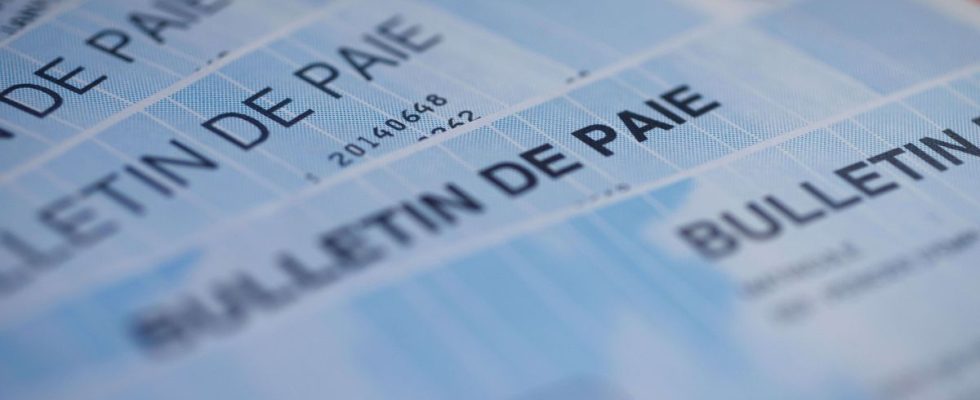High inflation is clearly having an impact on purchasing power. In 2022, the average net salary in constant euros of private sector employees decreased by 1%, the “strongest” decline observed over the last 25 years apart from the trompe-l’oeil developments during the health crisis, indicates the Insee in a study published Wednesday. Last year, an employee in the private sector earned “on average 2,630 euros net per month in full-time equivalent (EQTP)”.
In current euros (i.e. without taking inflation into account), the salary has “significantly increased” in 2022: +4.2% net. But “consumer prices increased more sharply (+5.2%, after +1.6% in 2021), so that the average net salary in constant euros decreased by 1.0%”, continues the INSEE.
Purchasing power maintained for minimum wage employees
“If we except the decline in 2021” (-1.3%), resulting “largely from changes in the composition of employment during the health crisis”, “the drop in the purchasing power of net salaries in EQTP in 2022 is the strongest since 1996, the year since INSEE has been measuring this indicator,” the study continues. “Only the purchasing power of the lowest salaries has been maintained, due to the increases in the minimum wage in line with inflation,” underlines INSEE.
In 2022, “half of employees in the private sector receive less than 2,091 euros net per month in EQTP”, the study also notes. “This median net salary is 20.5% lower than the average salary, which reflects a greater concentration of salaries at the bottom of the distribution.”
Furthermore, women, over-represented at the bottom of the salary distribution, earn “on average 14.1% less than men in EQTP”, a gap which “has reduced by 0.7 points compared to 2021 and 6.8 points since 2008.”

